Hunger Strike In Vienna To Free Iran Hostages Gathers Momentum
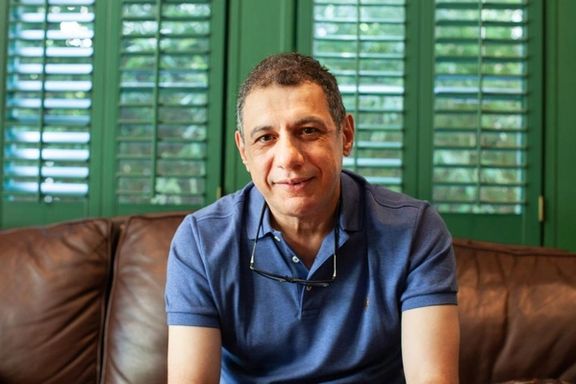
Nizar Zakka, a Lebanese a former hostage in Iran, has joined other rights activists protesting at the venue of nuclear talks between Tehran and world powers in Vienna.

Nizar Zakka, a Lebanese a former hostage in Iran, has joined other rights activists protesting at the venue of nuclear talks between Tehran and world powers in Vienna.
Zakka said on Friday that he joined a sit-in that Barry Rosen, a former US diplomat held hostage in Iran for 444 days four decades ago, started earlier this week to demand the release of all foreign hostages in Iran before the United States and other world powers reach any agreement with Iran.
Zakka himself has established an NGO to support and help the release of people held hostage for unjust reasons. Zakka was detained in Iran on vague espionage charges, in what human rights organizations have described as essentially hostage-taking by the Islamic Republic.
UK-based Iranian journalist and activist Jamshid Barzegar has also joined Rosen’s sit-in that is gaining momentum. US Special Envoy for Iran Robert Malley met with Rosen on January 19 and urged him to end his hunger strike.
On Wednesday, a French tourist, Benjamin Briere, also detained in Iran on vague charges appeared in court where the judge made Iran’s intentions clear by using the word prisoner "swap", according to his lawyer.
Iran has detained many foreigners and dual nationals who have visited the country and used them as bargaining chips against Western countries, according to human rights organizations.
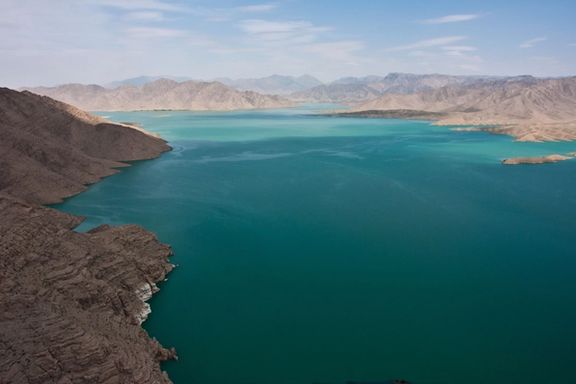
A Taliban minister has dismissed as rumor Iranian reports that Afghanistan’s new rulers have allowed water from the Kamal Khan Dam to flow into to Iran.
Iran's state-run television (IRIB) Wednesday reported that the water, released Tuesday, was heading to Iran and would soon reach Hamun Lake, Sistan-Baluchestan province, following diplomatic contacts with the Taliban designed to revive the Afghan-Iranian 1973 treaty over sharing waters of Helmand River (also known as the Hermand).
The previous Afghan government stopped the flow of water to Iran after inaugurating the Kamal Khan Dam, in Nimroz province, in March. In a speech unveiling the dam March 24 President Ashraf Ghani, while expressing commitment to the 1973 agreement, apparently suggested Kabul wanted to trade water for oil.
According to Afghanistan's Herat News, the Taliban minister of water and electricity Abdul Latif Mansur said Wednesday that water from the dam had now been released only for the use of Afghan farmers and that any other claims were “rumors.”
Another reason why the Taliban opened water from the dam could be heavy snow and rain in the region for the past ten days. Some local dams in Iran became full and authorities had to release excess water.
But Iran’s Javan newspaper ran a report Thursday in which Hasan Kazemi-Ghomi, Tehran’s representative for Afghan affairs, expressed appreciation for the Taliban releasing Iran’s “share of water."
Javan, which is affiliated to the Revolutionary Guards (IRGC), wrote that in contrast to the previous Afghan authorities, the Taliban “abides with the official agreements with Iran and does not oppose Iran's share of the waters of Hirmand." Looking forward to the water reaching the parched Hirmand River and Hamun Lake, Javan suggested this resulted from discussions during the visit of Afghan Foreign minister Amir Khan Muttaqi earlier this month and a “five-month friendship-diplomacy."
The Taliban government is yet to be fully recognized by any country, and some Iranian media have suggested the Taliban may be looking to trade water for full diplomatic relations.
In a commentary headlined "Water in Return for Recognition," the reformist Etemad newspaper said Thursday that the Taliban's intentions were unclear. Opening the dam’s gates during the rainy season might be a bargaining gambit, it suggested, rather than acceptance of the 1973 Afghan-Iran treaty, under which Afghanistan agreed to release annually around 850 million cubic meters of water (26 m3 per second) to Iran.
Tehran has for decades complained about not always receiving this share. In 1999, for instance, the Taliban turned off the flow completely. In August a Taliban spokesman dismissed as "enemy propaganda" reports and a video circulating on social media showing waters flowing from the Kamal Khan Dam towards Iran, insisting the water was not for Iran.
A recent report by the Iranian Parliament’s Research Center said around one-fifth of 282 Iranian cities are facing water shortages. Sistan-Baluchestan, one of the provinces hit worst by drought, has seen hundreds of villages abandoned in the past two decades.
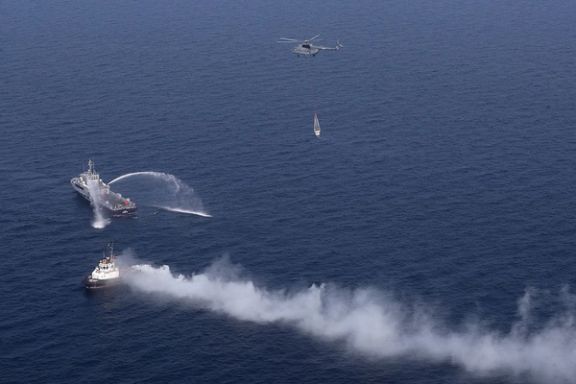
Iran, China and Russia held their third joint naval drills in the northern Indian Ocean on Friday, amid Tehran’s push to expand ties with the two Asian powers.
Navies from Iran's armed forces and Revolutionary Guards are taking part in the "2022 Marine Security Belt" exercise over an area of 17,000 square kilometers (6,560 square miles), Rear Admiral Mostafa Tajoldini, spokesman for the drills, told state TV.
The drills, which began in the early hours of Friday, will include various tactical exercises such as rescuing a burning vessel, releasing a hijacked vessel, and shooting at air targets at night.
The three countries started joint naval drills in 2019 in the Indian Ocean and the Sea of Oman area, Tajoldini said.
"The purpose of this drill is to strengthen security and its foundations in the region, and to expand multilateral cooperation between the three countries to jointly support world peace, maritime security and create a maritime community with a common future," Tajoldini said.
Since coming to office last June, Iran's hardline President Ebrahim Raisi has pursued a "look east" policy to deepen ties with China and Russia. Tehran joined the Shanghai Cooperation Organization in September, a central Asian security body led by Beijing and Moscow.
Foreign Minister Hossein Amirabdollahian visited China last week and Iran's president met his Russian counterpart in Moscow on Wednesday.
Reporting with Reuters

Facebook parent Meta Platforms removed a network of fake accounts that originated in Iran and targeted Instagram users in Scotland with content supporting Scottish independence, the company said on Thursday.
The network used fake accounts to pose as locals in England and Scotland, posting photos and memes about current events and criticism of the United Kingdom's government, Meta said.
The accounts organized their content around common hashtags promoting the cause, though they at times misspelled them, the company said.
In a referendum on Scottish independence in 2014, Scots voted 55%-45% to remain in the United Kingdom, but both Brexit and the British government's handling of the COVID-19 crisis have bolstered support for independence among Scots and demands for a second vote.
Meta said its investigation found links to individuals in Iran, including people with a background in teaching English as a foreign language.
It said the operation had some connections with a small Iran-based network it previously removed in December 2020, but did not provide further details on who might be behind the activity.
"We've seen a range of operations coming from Iran over the last few years," said Ben Nimmo, Meta's global threat intelligence lead for influence operations, in a press briefing. "It's not a monolithic environment."
The social media company said it had removed eight Facebook accounts and 126 Instagram accounts as part of this latest network in December for violating its rules against coordinated inauthentic behavior.
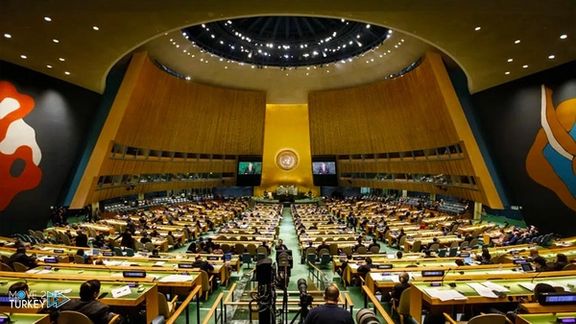
The UN General Assembly on Thursday agreed on a definition of denial of the Holocaust and urged social media companies "to take active measures" to combat antisemitism.
"The General Assembly is sending a strong and unambiguous message against the denial or the distortion of these historical facts," said Germany's UN Ambassador Antje Leendertse. "Ignoring historical facts increases the risk that they will be repeated."
While the 193-member General Assembly adopted the resolution - drafted by Israel and Germany - without a vote, Iran disassociated itself from the text over Israel's "occupation of Palestine and parts of Syria and Lebanon."
Israel's UN mission did not immediately respond to a request for comment on Iran's statement.
The General Assembly resolution spelled out that distortion and denial of the Holocaust refers to Intentional efforts to excuse or minimize the impact of the Holocaust, gross minimization of the number of the victims in contradiction to reliable sources and attempts to blame the Jews for causing their own genocide.
The resolution also said statements that cast the Holocaust as a positive historical event constitute denial, and "urges member states and social media companies to take active measures to combat antisemitism and Holocaust denial or distortion by means of information and communications technologies and to facilitate reporting of such content."
With reporting by Reuters
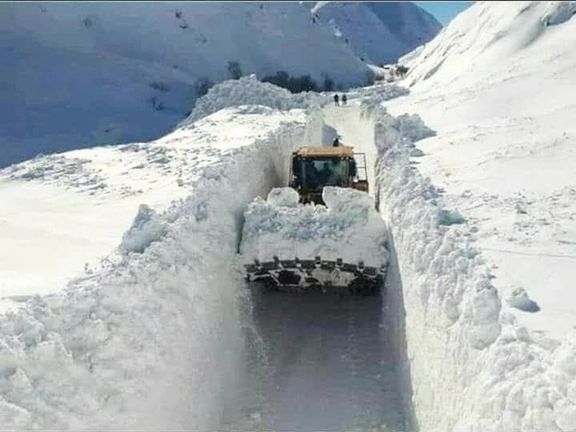
Turkey said on Thursday it will impose limited power outages to large industrial facilities and electricity plants after Iran cut gas exports for up to 10 days due to a "technical failure."
The nature of the technical problem is not clear, but Iran suffers from natural gas shortages in cold and hot temperatures when local consumption skyrockets.
Temperatures have dipped below freezing in many parts of Iran, which could have reduced gas available for export. Heavy snow has blanketed mountainous regions.
Turkey’s energy ministry said the cuts will be pre-planned to reduce disruptions. In a statement, the ministry added that it took precautions to ensure other consumers would not be impacted by the gas flow interruption.
Iranian officials had earlier warned of gas shortages in the cold winter months.
Iran needs tens of billions of dollars in investments for its sagging energy sector that also suffers from lack of advanced Western technology. Pressure at Iranian gas fields have been falling in recent years.
Years of international and American sanctions, as well as an inefficient government-controlled economy have prevented investments and technology to keep the energy sector robust.